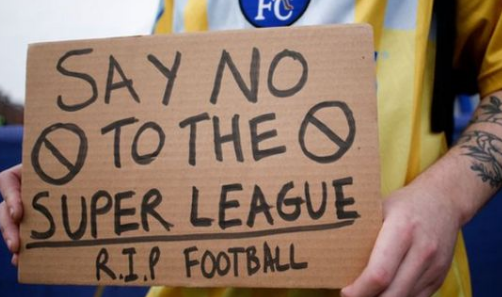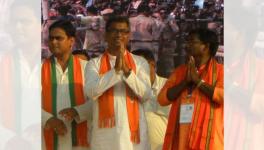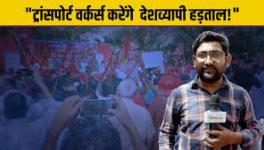Super League: Europe Chose History Over Money, Are Indian Football Bosses Listening?

While in Europe the fans protested against the cash-rich Super League, in Kolkata, a big chunk of supporters of Mohun Bagan and East Bengal were ready to forfeit their clubs’ 100-plus year legacy to join the bandwagon of the ISL (Pic: Twitter, BBC).
The death of Ahmed Hussain in the second week of April hardly made news in Indian football. The 88-year-old Olympian was a forgotten name; a footballer of the bygone era, who last donned the national colours 62 years ago. Barring a few casual condolence messages, no serious discussion was initiated on his contribution to the game.
It, however, came as a surprise when Hussain’s passing away was condoled by FIFA president Gianni Infantino a few days later. The world body made it a point to remember the man who played a role behind India finishing a creditable fourth in the 1956 Melbourne Olympics.
Well, it may be wrong to read too much into the FIFA message; it may only be a routine affair. However, it proves a point – the atmosphere surrounding the game may have transformed completely in the last six decades, or FIFA may have undergone a sea change, but it has been careful not to lose its sense of history. Any such denouncement, it knows, will be self-destructive for football in the long run.
Only recently, the turn of events after a dozen super-rich clubs decided to go ahead with the newly-formed Super League in Europe made a large number of football lovers across the world heave a sigh of relief. Despite the growing financial might of the all-powerful corporate world in the sporting arena, football has managed to retain its ideological base – the hasty retreat of the multi-billionaire English clubs is a clear sign that not everything is lost for those who still believe football will continue to remain the beautiful game.
Also Read | IPL 2021: Of Bubbles & Men Whose Heads are Stuffed in Them
Contrary to the scenario in Indian football, the management of the game in Europe is more focussed and aware of the long-term impact of any move to take the game too far away from its roots. Detractors may say that both FIFA and UEFA came all guns blazing against the proposed Super League because they feared losing control over the game. True, but at the same time, a host of coaches, former and current footballers severely criticized the Super League because of its lack of competitiveness which could lead to losing the very essence of the game.
Manchester City coach Pep Guardiola made a telling remark on the European Super League that perhaps caused the single most damage and led to the shelving of the plan controlled by the president of Real Madrid, Florentino Perez. If read without context, one might feel the Spanish coach was actually making an observation on India’s top league.
The City boss summed up the rotten heart of the Super League concept, by saying: “It is not sport when the relation between effort and success and reward doesn’t exist. It is not a sport. It is not a sport if success is already guaranteed. It is not a sport if it doesn’t matter if you lose.
“That’s why I said many times, I want the best competition, the strongest competition possible, especially the Premier League. It is not fair when one team fights, fights, fights, arrive at the top and cannot qualify because success is already guaranteed just for a few teams….. what happens to the 14 or 15 not playing a good season and every time will be there? So this is not sport,” the Spanish coach said.
Frankly, Guardiola is not the first person to say it in as many words. Many in the Indian football circle had been trying to tell the same thing for the past seven years. In vain, though. Unlike Europe, the authorities here are firm believers in a system that doesn’t really hurt anyone on the pitch and leaves everyone fairly happy off the ground.
Also Read | Vinesh Phogat Details Out Her Tokyo Plan
The European Super League tried to lure away traditional institutions. In India, no such attempt was made initially. Instead, a bunch of new clubs were raised in the most unprecedented manner; they were renamed as franchises and rules were twisted from time to time to force the traditional clubs to shut shop. A fairly smooth operation with the parent body overseeing the process.
Only two clubs, Mohun Bagan and East Bengal, were too huge to manage and forced themselves into the new system. The goal was finally achieved after a few seasons and here only the bankruptcy of the Indian football system down to the fans’ level got truly exposed.
While in Europe, the fans lined up to protest against joining the cash-rich league, in Kolkata, the chunk of supporters of two so-called pillars of Indian football mostly behaved in a manner as if they were ready to forfeit their 100-plus year legacy to join the bandwagon of the new league. The club officials also helped the cause as they were proving increasingly incompetent to handle the affairs of large fan- based clubs.
Of course, it would be highly unfair to put the entire blame on club officials and fans. In Europe, they enjoyed the backing of the national, continental and world body, who threatened to punish the clubs if they joined the Super League. In India, the national association convinced the continental body to provide recognition to a competition, which, if Guardiola is to be believed, is no sport since winning and losing doesn’t really matter here. It desperately needed a spot in the Asian Champions League to buy the respectability that was badly missing. Fierce lobbying and right connections did help with the vague assurance of starting the promotion and relegation after a few seasons, which, if reports are to be believed, is unlikely.
Caught in between, the two Kolkata giants lost the battle and expectedly so. In Europe, the clubs were threatened with bans. On the contrary, in India, those who opposed the move were slapped with huge fines on different counts. Several meetings of disciplinary committee and appeal committee were held and lakhs were spent on it. Once the two clubs fell in line, everything was shelved.
None in the federation’s executive committee asked what the fuss was actually all about and why so much money was wasted. In Germany, the major clubs have the insurance of being protected by the 50+1 rule. No such rule exists in Indian football and corporates, who never dealt with the game previously, can buy out any traditional outfit simply because of deep pockets.
The problem of Indian football is its much-publicised neo-liberalism that hopes to thrive in its utter disregard for history. There is a distinct attempt to highlight the post-2014 scenario only, almost like the current government at the centre. The death of an Olympian of Nikhil Nandy’s stature doesn’t call for the observance of a minute’s silence for the departed soul in the country’s most-watched league, no one cares even if his brief obituary carries few glaring mistakes. There seems an undeclared tendency to cover up everything with a show of indifference.
Under the present circumstances, the setback for the Super League has a bigger impact – it goes beyond the European hemisphere and leaves an opportunity to kick-start fresh arguments in places like India. Till recently, Indian football looked like a sport arm-twisted by financial strength with no place left for ideological debates. Europe has proved that there are still people left to take up arms to resist attempts to hijack the game.
Get the latest reports & analysis with people's perspective on Protests, movements & deep analytical videos, discussions of the current affairs in your Telegram app. Subscribe to NewsClick's Telegram channel & get Real-Time updates on stories, as they get published on our website.
























